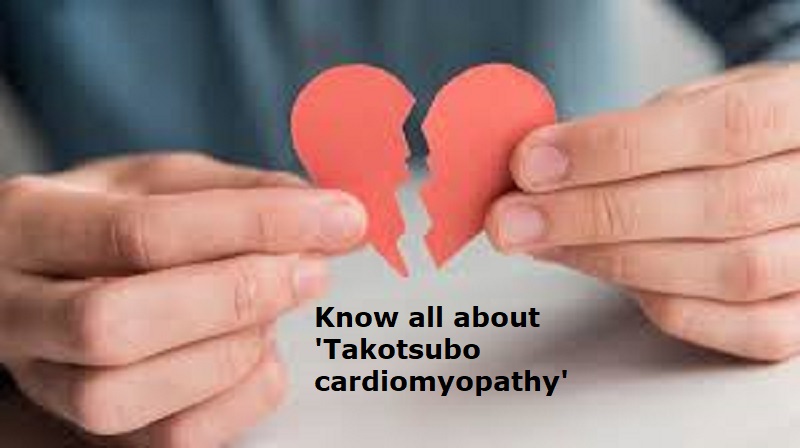
Broken heart syndrome is also known as Takotsubo cardiomyopathy. It is a temporary heart condition that is often triggered by extreme emotional or physical stress. It was first described in Japan in the 1990s. The name “takotsubo” refers to the shape of the heart during this condition, which resembles a Japanese octopus trap.
This syndrome particularly affects postmenopausal women. In broken heart syndrome, there is a sudden and severe weakening of the heart muscle, leading to symptoms similar to a heart attack, such as chest pain, shortness of breath, and an irregular heart rhythm. The heart’s pumping function is affected, and it may take on a distinctive shape during imaging tests like echocardiography. But people affected with this did not show evidence of blocked arteries. Patients typically recover within weeks.
The exact cause of broken heart syndrome is not fully understood. But experts believe that a surge of stress hormones, such as adrenaline can temporarily stun the heart.
Emotional stressors, such as the death of a loved one, a breakup, or a traumatic event, are commonly associated with triggering broken heart syndrome. However, physical stressors like a serious illness or surgery can also lead to the condition.
Also Read: Questions you should ask your partner before having sex
Treatment involve medications to manage symptoms and provide support to the heart during recovery.Doctors recommend stress-reducing practices such as yoga and meditation to help manage symptoms.
Adopting a heart-healthy lifestyle can contribute to overall cardiovascular well-being. This includes maintaining a balanced diet, engaging in regular physical activity, managing stress, and avoiding tobacco and excessive alcohol consumption.

Post Your Comments